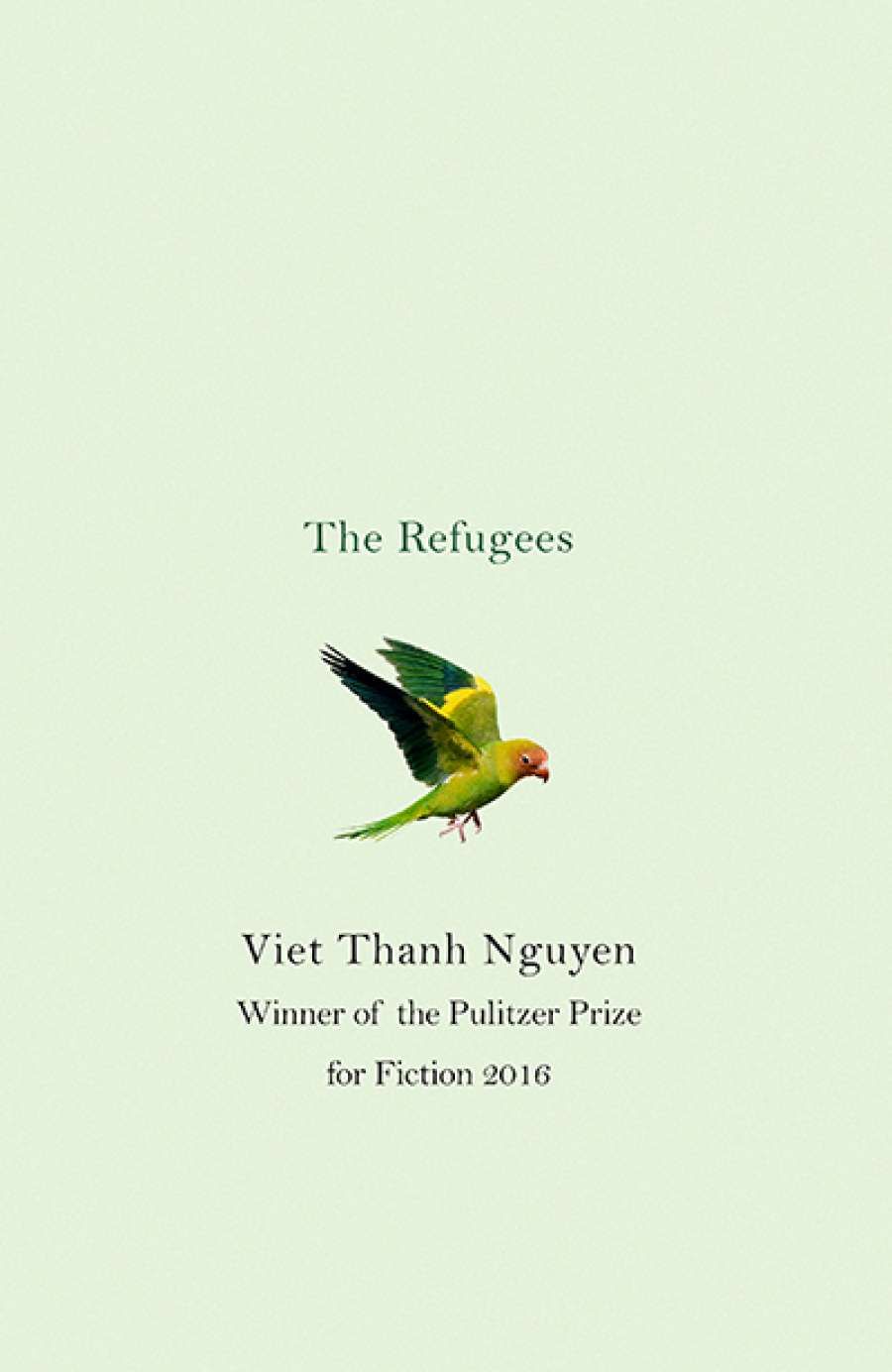
- Free Article: No
- Contents Category: Fiction
- Custom Article Title: Kerryn Goldsworthy reviews 'The Refugees' by Viet Thanh Nguyen
- Review Article: Yes
- Online Only: No
- Book 1 Title: The Refugees
- Book 1 Biblio: Corsair $32.99 hb, 210 pp, 94781472152558
There are eight stand-alone stories, each with its own theme, mood, and separate cast of characters, but each story focuses on family relations in the aftermath of the Vietnam War, as refugee families struggle to come to terms with their fragmentation or with their new life in California. But for Nguyen it is clear that his own experience and knowledge of these matters provide the tangible material details of a more general theme: the book’s dedication reads ‘For all refugees, everywhere’.
Most refugee stories are tales of peril and escape, but almost all of Nguyen’s stories are set in the aftermath, sometimes years later, of such events. The question that these stories ask and answer is ‘Now what?’ Ten or twenty or thirty years from now, where will the asylum seekers currently languishing on Nauru and Manus Island be, and what will their lives be like? Nguyen explores life for his characters in an exiled but peaceful aftermath; he rarely writes directly about the actual experience of fleeing one’s country. When he does, it is devastating, as with the opening story ‘Black-Eyed Women’; the narrator reveals only belatedly and incidentally what happened to her as a young girl on the rickety fishing boat when it was overtaken by pirates. Here as elsewhere, the clear, undecorated, declarative style somehow gives more force to dramatic subject matter when it is directly addressed:
When the little man threw me to the deck, the fall bruised the back of my head. When he ripped my shirt off, he drew blood with his sharp fingernails. When I turned my face away and saw my father and mother screaming, my eardrums seemed to have burst, for I could hear nothing ... The world was muzzled, the way it would be ever afterward with my mother and father and myself, none of us uttering another sound on this matter.
The extraordinary cohesiveness and tight structure of this book is not particularly apparent on first reading – nothing about this book is simple or obvious – but each story leads on in some direction from the last. In ‘Black-Eyed Women’, the experience of the Vietnamese boat people is still very close, with every character having first-hand experience of the escape. In the second story, a young man has made it to the United States and embarks on some very new experiences, but his family has been left behind, their lives only glimpsed through the surface of his father’s careful letter: ‘This summer, your uncles and cousins were reeducated with the other enlisted puppet soldiers. The Party forgave their crimes. Your uncles were so grateful, they donated their houses to the revolution.’
 Viet Thanh NguyenIn the third story, the narrator’s parents have established their grocery business in California and are being harassed by a member of their community ‘collecting funds for the fight against the Communists’, despite the fact that it is now 1983, but his mother resists: they are making a hard-won living on the modest mark-ups of their groceries, and they believe, rightly of course, that the fight has been permanently lost. This focus on the exchanges of the material world sharpens further in the next story, in which a fraudulent operation involving cheap brand-name imitation goods is being carried out against the grateful recipient of a liver transplant. The distance in time from the war increases from story to story as its ramifications spread outwards and become more varied, and the children of the refugees grow up.
Viet Thanh NguyenIn the third story, the narrator’s parents have established their grocery business in California and are being harassed by a member of their community ‘collecting funds for the fight against the Communists’, despite the fact that it is now 1983, but his mother resists: they are making a hard-won living on the modest mark-ups of their groceries, and they believe, rightly of course, that the fight has been permanently lost. This focus on the exchanges of the material world sharpens further in the next story, in which a fraudulent operation involving cheap brand-name imitation goods is being carried out against the grateful recipient of a liver transplant. The distance in time from the war increases from story to story as its ramifications spread outwards and become more varied, and the children of the refugees grow up.
Against this historical background, which has shaped the lives of almost every character in the book, Nguyen tells tales of private lives and intimate human relationships, especially in families: these are tales of brother and sister, of father and daughter, of husband and wife. Their essence is distilled in the final paragraph of ‘I’d Love You to Want Me’, a story about a younger wife whose septuagenarian husband is slipping into dementia. ‘She wondered what, if anything, she knew about love. Not much, perhaps, but enough to know that what she would do for him now she would do again tomorrow, and the next day, and the day after that.’


Comments powered by CComment